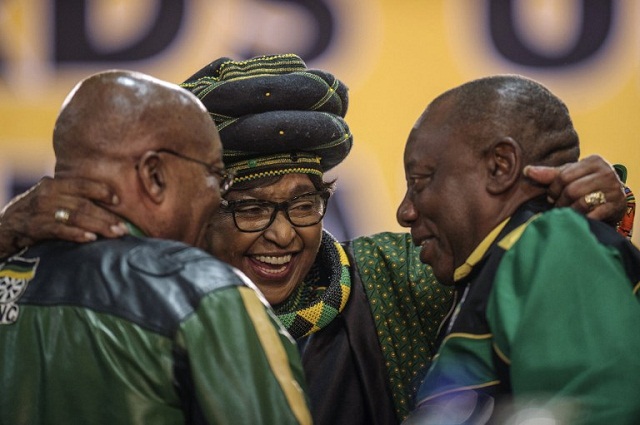
Paris, France | AFP | Black South Africans voted for the first time in April 1994, turning out in droves for a jubilant election that was the final death blow to centuries of white domination.
Here is an account of that historic event, based on AFP reports from the time.
– Snaking queues –
Long lines of black voters snaked back from polling stations across the country over the four days of voting from April 26 to 29.
The first day was reserved for the elderly, ill, pregnant women and officials who would be on duty when general polling opened on April 27.
Even a series of deadly bombings on the eve of the election, blamed on white right-wing extremists, could not dampen the enthusiasm of the 22 million voters fired up by the end of the apartheid system of white-minority rule imposed in 1948.
“I don’t mind standing here even if it is raining because I have been waiting for 46 years to vote,” one man said in a queue in Cape Town.
African National Congress (ANC) leader Nelson Mandela cast his ballot in the Inanda black township near Durban, watched by a barrage of photographers and journalists.
“We have now moved from an era of pessimism, turmoil and conflict,” the smiling anti-apartheid hero said. “Now we are starting a new era of hope, reconciliation and nation-building.”
– ‘Indescribable’ –
Hours before the 9,000 polling stations opened on April 27, the orange, white and blue apartheid-era flag was lowered for the last time at ceremonies in all the provincial capitals.
There were cheers in Johannesburg as a crowd of about 300 witnessed the hoisting of the new multi-coloured flag.
Outgoing president F. W. de Klerk — who had cleared the way for the end of apartheid when he unbanned the ANC and released Mandela in 1990 — voted in the plush Pretoria suburb of Arcadia.
It is “a great day for South Africa,” he said. “Today is the start of a new era.”
He went on to Johannesburg’s black township Soweto to watch Foreign Minister Pik Botha cast his ballot, cheered by emotional black voters who shouted, “I love you!”.
Mandela’s estranged wife Winnie Madikizela-Mandela also drew heavy media attention when she cast her ballot in the Katlehong black township east of Johannesburg.
“It’s indescribable. I don’t think you can put it into words for people who haven’t paid as high a price as we have. I’m ecstatic,” she said.
Nobel Peace Prize winner Archbishop Desmond Tutu was also overjoyed, despite having to wait 45 minutes at his voting station in Guguletu outside Cape Town for ballot papers to arrive.
“You just want to yell, dance, jump and cry all at the same time,” he said while queueing.
– Voting extended –
But the day belonged to the ordinary black South Africans who brought plastic chairs to sit on and umbrellas to shade them during the inevitable long wait.
Salphy Molea, a domestic worker who voted in Johannesburg, said: “Really, I’m feeling very happy. We’ll pray to God to give everybody a better life.”
Her white employer, Rosalyn Messerschmidt, said she was “very positive”.
Polling was extended into a third day in some areas where logistical glitches meant that thousands had not been able to cast their precious first ballots.
– First black president –
Vote-counting dragged on for days but it was always clear the ANC was going to win, and the party began celebrating even before the results were announced.
De Klerk conceded defeat for his National Party on May 2, saying: “After so many centuries we will finally have a government which represents all South Africans.”
In a huge celebration party at ANC campaign headquarters, Mandela claimed victory and saluted the “ordinary, humble people of this country”.
“You have shown such a calm, patient determination to reclaim this country as your own, and joy that we can loudly proclaim from the rooftops — free at last!”
Black townships erupted in celebrations of joy, with singing, dancing and fireworks.
The official results were announced on May 6, giving the ANC 62.65 percent.
On May 10 Mandela took the oath at the government’s Union Buildings in Pretoria. South Africa had its first black president.
 The Independent Uganda: You get the Truth we Pay the Price
The Independent Uganda: You get the Truth we Pay the Price



